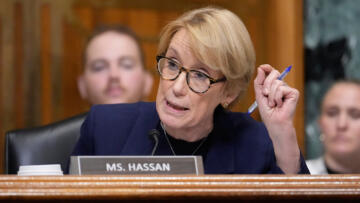Data Is Plural is a weekly newsletter of useful/curious datasets. This edition, dated Jan. 4, 2023, has been republished with permission of the author.
Prison-banned books. The Marshall Project is building a database of books banned from state prisons, based on official lists that reporters requested from each state’s correctional agency. The browsable and downloadable database includes roughly 50,000 entries from 18 states so far, with plans for expansion. The fields include the book’s title, author, date banned, and reason for banning, although availability varies by state. (Disclosure: I did some contract work for this project, extracting data from PDFs.) Read more: “Why Would Prisons Ban My Book? Absurdities Rule the System,” by Marshall Project reporter Keri Blakinger. Previously: School-banned books (DIP 2022.07.06).
Severe weather warnings. Among its many services, the Iowa Environmental Mesonet provides a range of National Weather Service data interfaces and downloads, including current and historical severe weather warnings, watches, and advisories. Coverage for tornado, severe thunderstorm, flash flood, and marine warnings goes back to 1986; in more recent decades, the data includes dozens of additional phenomena, such as “freezing fog,” “high surf,” “dense smoke,” and “excessive heat.” The records indicate each alert’s geospatial boundaries, time of issuance and expiration, forecast office, status, and more.
Congregations and adherents. A successor to the federal government’s Census of Religious Bodies (1890–1936), the US Religion Census is now conducted every 10 years by the Association of Statisticians of American Religious Bodies. The researchers approach “formal denominations and religious groups,” from which they collect “data on the number of congregations, members, adherents, and attendees” at a county level. Results for the 2021 study, available as spreadsheets and maps, include responses from 370-plus faith groups. Previously: The National Congregations Study (DIP 2021.12.29). [h/t Adam Porter]
UAE art establishments. As part of her doctoral research into the role of women in the United Arab Emirates’ art scene, Eve Grinstead has compiled three tables of relevant data, listing 99 galleries, nine fairs, and eight auction houses in the country. Each row includes the establishment’s name, date founded, specialty, owners/founders, city (or Dubai neighborhood), and Grinstead’s notes.
One billionaire’s donations. Last month, billionaire MacKenzie Scott unveiled a website for her philanthropic efforts. It features a downloadable table that lists 1,600-plus donations doled out since 2019, with each gift’s year, amount (replaced with “disclosure delayed for benefit of recipient” for 28 percent of entries), and recipient organization. Read more: “MacKenzie Scott reveals details of her $14bn in donations to 1,600 non-profits” (The Guardian). [h/t The Morning News]
Notice: Unlike most of our content, this edition of Data Is Plural by Jeremy Singer-Vine is not available for republication under a Creative Commons license.




